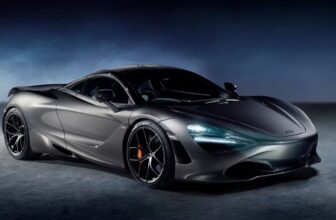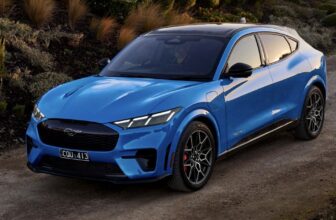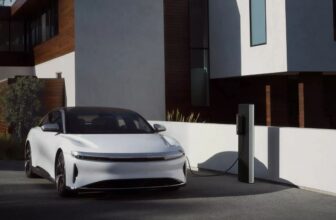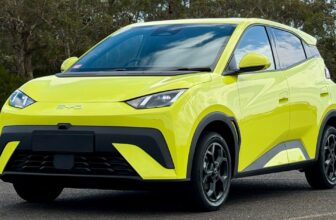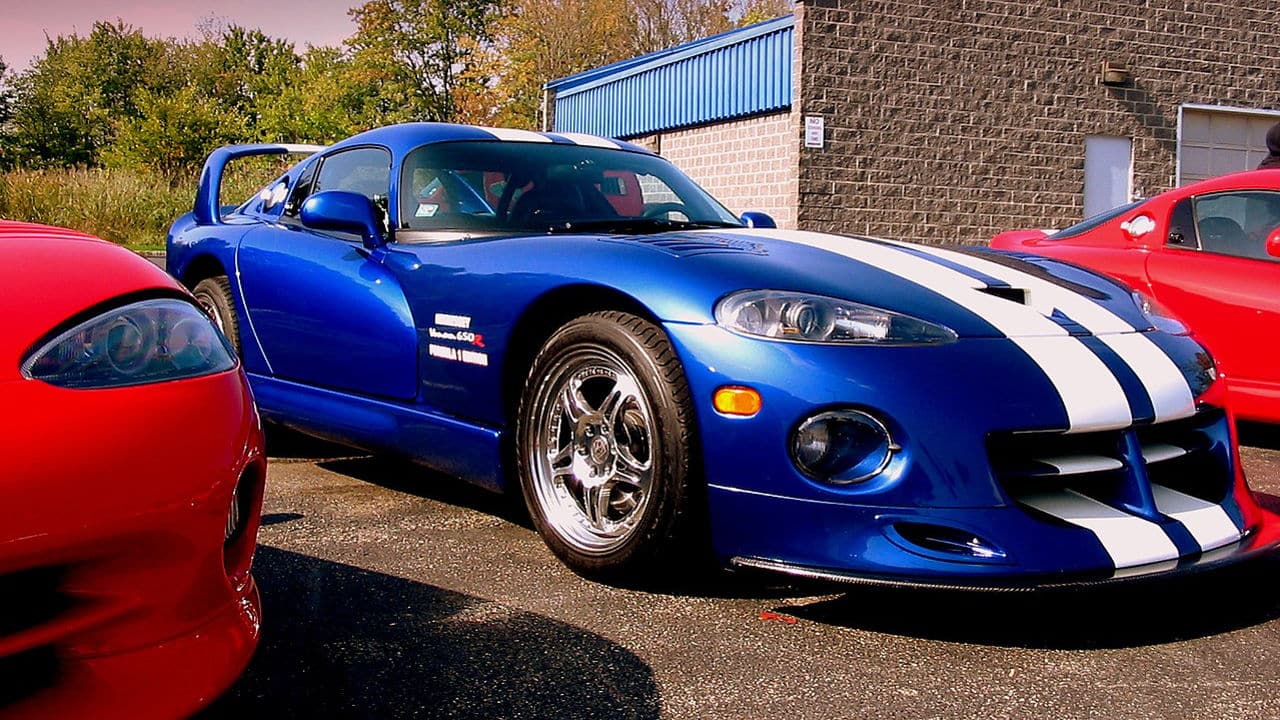
Take a look at our newest merchandise
Anybody with sufficient cash can stroll right into a dealership and buy a supercar. No particular racing license is required, and that’s okay as a result of modern-day supercars are as straightforward to drive as your common sedan.
It wasn’t at all times like this, although. Again within the day, it took some critical talent to maintain certainly one of these velocity machines on the street.
We’ve created a listing of 13 supercars recognized for his or her sketchy conduct when pushed to carry out. For that purpose, they need to solely be pushed by these with loads of expertise.
Porsche Carrera GT
Porsche launched the mid-engined Carrera GT supercar in 2004, and it was obtainable till 2006. Only one,270 vehicles had been constructed throughout that point. It quickly grew to become generally known as one of many rawest and scariest fashions to ever emerge from Stuttgart, largely due to its naturally aspirated V10 engine producing 611-hp.
It might probably launch to 62 mph in simply 3.9 seconds and attain a prime velocity of 205 mph. Generally known as one of many final analog supercars, the Carrera GT was greater than a handful to maintain on the street. It’s now notorious for being Paul Walker’s last trip, and it practically took out Jay Leno at Talladega Superspeedway years earlier than that.
Dodge Viper


When Dodge launched the first-gen Viper, it additionally popularized the V10 engine for sports activities automotive use, as this configuration was principally present in diesel vehicles till that time. The 8.0-liter unit underneath the GTS mannequin’s lengthy hood produced a powerful 450 wild American horses, making it an untamable beast.
Should you fear about security options, this automotive isn’t for you — the one security characteristic is your proper foot and reflexes. With time, the V10 engine grew to eight.3 and eight.4 liters, and whereas Dodge ultimately included some primary security options and driver aids, the Viper would chew if it was disrespected.
Koenigsegg CCR


Koenigsegg is now a family identify, and the Swedish carmaker has constructed a number of the quickest manufacturing vehicles the world has ever recognized.
The model’s early fashions, just like the CCR, earned a fame for being difficult to drive at excessive speeds. With a twin-turbocharged 4.7-liter V8 producing over 800 hp, giving it a prime velocity north of 240 mph, it doesn’t take a rocket scientist to understand the Koenigsegg automotive isn’t for inexperienced drivers.
Koenigsegg CCX


Following the CCR, Koenigsegg launched the CCX in 2006. A lot of the method remained unchanged from its predecessor, because it nonetheless had an 800+ hp twin-turbocharged V8 engine.
The CCX was pushed across the High Gear Take a look at Observe by Ben Collins, higher generally known as The Stig. Over time, he set quicker lap occasions than many Formulation One drivers, however even he couldn’t maintain the CCX on the monitor throughout its high-speed run, and crashed right into a tire wall.
Pagani Zonda


When Pagani launched the unique Zonda in 1999, jaws dropped all through the automotive business. It didn’t appear to be every other supercar on the time, and the craftsmanship was second to none.
The Zonda wasn’t all present and no go, both. Behind the motive force, it had an AMG V12 engine producing over 700 hp. With minimal digital aids to assist maintain these horses in test, the Zonda was a handful to maintain on the street. Even seven-time F1 champion Lewis Hamilton struggled and stated it’s “horrible to drive.”
TVR Pace 12


TVR was by no means a giant identify within the sports activities automotive business, at the least not outdoors the UK. The British carmaker constructed the Pace 12 to compete towards the McLaren F1 GTR on the racetrack, however with near 900 hp in a automotive weighing 2,500lbs, even TVR realized the Pace 12 was harmful.
They destroyed all of the prototypes and canceled manufacturing, however one automotive did make it and is now in non-public fingers. It’s powered by a 7.7-liter V12 engine that sends 840 hp to the rear wheels, giving it a prime velocity of 240 mph. Did we point out that the Pace 12 had no security options like airbags or traction management?
TVR Tuscan Pace Six


Removed from as deadly as its greater sibling, the Pace 12, the TVR Tuscan Pace Six continues to be difficult to drive. It featured a spread of TVR Pace Six inline-six engines, producing as much as 380 hp.
That’s not a number of energy by right now’s requirements, however do not forget that TVR didn’t actually consider in security options — even airbags weren’t included as normal!
Noble M600


Noble is one other British supercar firm that’s comparatively unknown outdoors the land of tea and crumpets. Its M600 mannequin has an engine from a Volvo XC90, which doesn’t sound very spectacular till you discover out it’s a 4.4-liter V8 that produces 650 hp, giving it a prime velocity of 225 mph.
In true British style, Noble wished to maintain the M600 as mild as doable, making it very tail-happy within the corners. These with a heavy proper foot ought to positively look elsewhere.
Porsche 930 Turbo


Nobody would ever declare that the common 911 is a supercar, however strap a turbo on the engine, and it’ll sustain with Italy’s best all day lengthy. Porsche launched the primary road-going turbocharged 911 in 1976, and it quickly grew to become some of the memorable vehicles they’ve ever made. A part of that’s right down to its lethal fame.
It didn’t take lengthy for the Porsche 930 Turbo to earn its nickname “the Widow Maker” because of its penchant for sending bankers and Wall Road merchants backward off cliffs and into bushes.
RUF CTR Yellowbird


Again within the Nineteen Eighties, those that felt a typical Porsche 911 Turbo was a bit lame may get the really bonkers RUF Yellowbird.
RUF based mostly the Yellowbird on a 911 Carrera, however by the point they had been completed, it had a bigger engine fitted with a few turbochargers, giving it a prime velocity of 211 mph. That was quicker than the Porsche 959 and Ferrari F40, making it the world’s quickest automotive within the late Nineteen Eighties. RUF check driver Stefan Roser drove it across the Nürburgring, going sideways by each nook.
Caparo T1


Caparo Car Applied sciences constructed the Caparo T1 as a “road-going Formulation One automotive.” There’s no denying that the Caparo T1 has a purposeful design, as F1 vehicles have sure options, and street vehicles should adhere to particular rules — that is only a mixture of the 2.
Sadly, the mix didn’t work notably nicely from a design viewpoint, and it’s even worse to drive. Like an F1 automotive, the T1 severely lacked grip at gradual speeds, so utilizing it in visitors isn’t really useful. It was highly effective, although. Fitted with a barely detuned 3.5-liter IndyCar V8 engine, it made 575 hp at 10,500 rpm.
McLaren F1


The McLaren F1 from the Nineties is likely one of the most iconic supercars ever made. It encompasses a 6.1-liter V12 engine developed by BMW, a gold-covered engine bay, a central driving place, a three-seat cabin, and even has cheap baggage area.
Due to its 630 hp, it’s nonetheless the world’s quickest naturally aspirated automotive, with a prime velocity of 240.1 mph — a document it has held since March 1998. Nonetheless, it takes a talented driver to maintain it in test. Elon Musk famously crashed his F1, and Rowan Atkinson, who’s additionally a talented race automotive driver, crashed his twice earlier than he bought it for an enormous revenue.
Lamborghini Countach


Lamborghini launched the Countach within the Nineteen Seventies, however its heyday was actually in the course of the Nineteen Eighties. Low, large, and wedge-shaped, nothing may match the Lamborghini Countach’s seems to be, and with time, it grew even wilder because it gained fender flares and wings, each entrance and rear.
It didn’t simply appear to be a fighter jet on wheels; due to a mid-mounted V12 engine, it appeared like one, too. Nonetheless, the Countach had a cramped cabin, horrible seating place, poor visibility, and notoriously heavy controls. It was nothing like right now’s supercars, and driving it quick required a number of expertise, guts, or stupidity.



